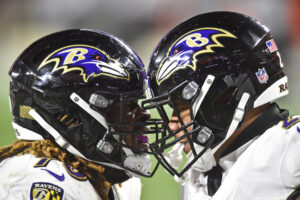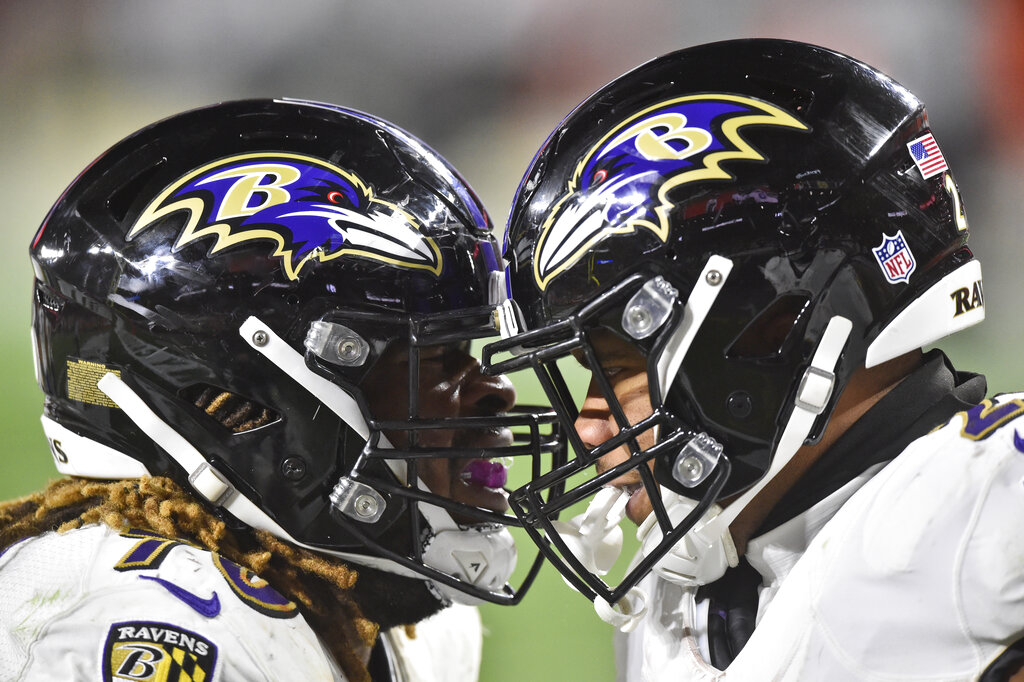Examining the NFL’s Treatment of Black Players and their Injuries
Kevin Lerell Henry, a former defensive lineman who played eight seasons for the Pittsburgh Steelers from 1993 to 2000, suffers from memory loss, headaches, depression, and extreme bouts of anger.
He suspected these symptoms were due to injuries he sustained while playing in the NFL. Henry decided to follow his instincts and see a specialist. In 2017, a neurologist revealed that Henry was in a cognitive decline.
“Football doesn’t give you an expiration date. You just expire. I’ve had ten concussions, or more. I’ve had at least 17 surgeries…17. And I’m still getting them,” stated Henry in an interview with ABC News.

A study conducted in 2019, led by researchers at the Harvard T.H. Chan School of Public Health in Boston, found that former NFL players die on average at the age of 59 years old.
As an article by Science Magazine stated: “The death rate from heart disease was 2.4 times higher for NFL players than that of former MLB players; for brain disease, it was three times as high.”
In 2013, in a Landmark Concussion lawsuit, the NFL agreed to monetarily support retired players with neurodegenerative disorders. However, more than two-thirds of approximately 3,000 claims were rejected.
Henry submitted a claim to the NFL Concussion Program and was denied. The league argued that the standards the neurologist used were measured differently.
The NFL is using controversial science to support rejecting neurodegenerative disorder claims from Black players for financial compensation after retirement.
Henry’s compensation denial launched a lawsuit against the NFL due to an uncovered practice utilized in cognitive exams known as “race-norming”. This formula takes into consideration the player’s age, gender, education, and race. “Race-norming” is used within the medical community to make assumptions about a patient’s background. It is argued that this tool helps avoid misdiagnosis.
According to the interview with ABC News, NFL Considers Race in Paying Head Injury Claims: Lawsuit, on a neurological level, the medical scale employed by the NFL assumes Black players start at a lower cognitive level than white players.
Thus, the league continually comes to the conclusion that they are not responsible for the retired Black athletes’ cognitive decline.
As of 2020, the NFL was composed of 70% Black Athletes. This number is estimated to have grown to roughly 80% as of 2021. Therefore, the NFL’s use of “race norming” disproportionately affects the Black community.
Recently, in a pre-Super Bowl press conference, an ESPN reporter asked if the NFL was addressing these allegations brought by the lawsuit from former NFL player Kevin Henry. According to an article by ABC News, NFL commissioner Roger Goodell implied that the league would “work with the court” to examine whether “changes” to the NFL concussion protocols are needed.
On Dec. 21, 2020, Katherine Possin, PhD, of the UCSF Memory and Aging Center, stated: “The Human Genome Project has taught us that human beings are 99.9 percent similar at the DNA level, and the remaining 0.1 percent does not vary according to socio-politically defined race categories such as Black or White.”
If race has no correlation with the biological differences between individuals, why is the league using a scale that considers race when deciding if retired players deserve compensation?
The answer to this question goes far beyond the NFL.
As stated within the article Racism in Health Care: What you Need to Know, : “A 2016 study found many white medical students wrongly believe Black people have a higher pain tolerance than white people. Of all the participants, 73% held at least one false belief about the biological differences between races.”
Racially biased medicine, also identified as Eugenics, is still utilized in science and medicine today. Some common misconceptions noted by white medical students are Black people have thicker skin, less sensitive nerve endings, or stronger immune systems. Racially based medicine derives directly from early 19th century utilized to justify slavery.
These beliefs contribute to systemic racism and have infiltrated professional sports.
According to author William C. Rhoden in his book Forty Million Dollar Slaves: The Rise, Fall, and Redemption of the Black Athlete: “For Black athletes in the United States, the roots of Black muscle are buried in the blood-soaked plantations of Virginia, South Carolina, Mississippi, and Georgia, where the majority of slaves were first brought to America for their physical labor. The plantation is where the Black athletes dramatic march through history began.”(33)
John Doe, a current NFL player who requested anonymity, said, “As in any industry, right? As a horse for example. There is a horse and it’s so strong. It’s going, going, going, then that horse gets hurt. What do they do? Get a new horse.”
Although in recent years the NFL has made strides to provide support for players, after retirement, the older generations of players were not as fortunate.
In the 1990 NFL draft Keith McCants was the fourth pick in the first round. He was one of the top college players and an All-American his junior season. McCants was arguably one of the most hyped linebackers to ever be drafted. McCants played six seasons in the NFL from 1990 to 1995.
In 2015, in a Vice Sports interview, Painkillers in the NFL: Keith McCants on the War Within, Keith McCants said: “As long as you are part of the National Football League, playing into the organization they provided me with everything that I needed. The moment they discarded me, got rid of me… I had to fend for myself….I lived on the streets for two years eating out of the garbage can, I’m saying go to take showers at the gas station, just trying to survive.”
In the last 35 years the NFL has made some critical changes to the Health and Safety Rules. One example of this was in 2018 when the kickoff rule was changed. The implementation of this rule resulted in a 35% reduction in concussions for that season. This was eventually made permanent in 2019.
Sadly, players like McCants and Henry did not benefit from these changes. However, today steps are being taken to try and avoid unfortunate outcomes like McCants, who now travels around the country speaking about his ordeal. Likewise, Henry’s lawsuit could have an impact on how the NFL compensates Black players in the future.
Jaleel Scott, a wide receiver for the New York Jets, talked about the shifting tide in the NFL. When asked about how the retirement process used to work for older players, in comparison to the benefits set up now, Scott said “it has evolved a lot.” According to Scott, the league provides healthcare after retirement. This health insurance can last up to five years.
Dan Graziano, an editor for ESPN stated, “The CBA provides for post-career health insurance for players and their families for a certain amount of time after retirement, depending on how many credited seasons the player has earned.”
In 2020, on the authority of the NFL Alumni Organization: “The new CBA contains increased and new benefits for vested alumni including increased pensions, a reduction to three seasons for pension vesting, and a new Health Reimbursement Account.”
Although the league has evolved, Scott discussed ways in which the league can still grow: “I feel like some athletes don’t speak up about a lot of things that they are going through just due to the fact that people in their organization might look at them differently.”
As the NFL continues to evolve and develop a safer version of the game and a safety net for its former players, the league has to ensure that no one is left behind. Both Keith McCants and Kevin Henry are examples of an older generation of players that did not get the same protection and compensation that the NFL is affording its players, like Scott, today.
As concussion protocols are amended and controversial medical practices are brought to light, the hope was the Race-Norming Lawsuit would have provided some much needed compensation for retired players and more accessible support for future generations.
On March 8th 2021, a Philadelphia judge dismissed the lawsuit against the NFL that challenged “race-norming”.
According to an ESPN article, Judge Dismisses Lawsuit Over ‘Race-Norming’ in NFL Dementia Tests the judge rather ordered the NFL and the lead lawyer, in the $1 billion case, to come to a settlement through mediation.
Lawyer Cyril V. Smith, who represents Kevin Henry, articulated: “We are deeply concerned that the Court’s proposed solution is to order the very parties who created this discriminatory system to negotiate a fix.”
As current NFL player John Doe stated: “Some people go out on the field, whether they are hurt or not, risking their lives to sustain their careers. This sh*t is a business at the end of the day. It’s a billion dollar business.”








